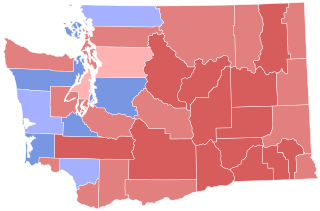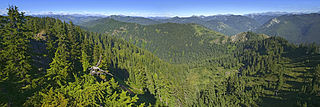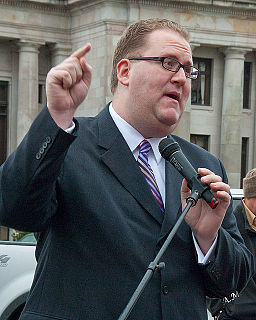Description
The county would have included all land in Snohomish County east of Snohomish, Washington, as well as the northeast corner of King County including Skykomish, Washington and the portion of U.S. Route 2 that passes through that county. The southern portion of state legislative district 39, existing within Snohomish and King Counties, also includes these areas. The largest city in the county would have been Monroe, Washington.
Proponents of the new county began collecting signatures as early as 1993 to send the proposal to the state legislature. The Skykomish movement worked in concert with other county proposals, such as those to create Cedar, Freedom and Pioneer counties.
In 1997, State Representative John Koster proposed House Bill 1660, which provided for the process to create Skykomish County pending a ballot question for the affected area. The proposal set forth that the existing superior court of Snohomish County would also serve Skykomish County. Opponents of the bill (and the new county) attempted to amend the bill to require a vote from the entirety of the counties affected (Snohomish and King Counties).
In 1998, the state Supreme Court ruled that signatures from half the registered voters of the affected area are required to propose a new county, shelving many county secession movements in the state. Prior to the ruling, Washington county secession movements had interpreted the law to require signatures from only half of those who voted in the most recent election. Arguing that voter registration rolls are always out of date, Skykomish County movement leaders attacked the court's ruling as creating an "unreachable standard".
Koster also submitted bills to create Freedom County, Washington and Pioneer County, Washington, but these were not voted on before the 1997 legislative session ended.

Snohomish County is a county located in the U.S. state of Washington. With a population of 827,957 as of the 2020 census, it is the third-most populous county in Washington, after nearby King and Pierce counties, and the 75th-most populous in the United States. The county seat and largest city is Everett. The county forms part of the Seattle metropolitan area, which also includes King and Pierce counties to the south.

King County is located in the U.S. state of Washington. The population was 2,269,675 in the 2020 census, making it the most populous county in Washington, and the 13th-most populous in the United States. The county seat is Seattle, also the state's most populous city.

Skykomish is a town in King County, Washington, United States. The population was 198 as of the 2010 census, down from an estimated peak of "several thousand" in the 1920s.

Monroe is a city in Snohomish County, Washington, United States. It is located at the confluence of the Skykomish, Snohomish, and Snoqualmie rivers near the Cascade foothills, about 30 miles (48 km) northeast of Seattle. Monroe's population was 19,699 as of the 2020 census and was estimated to be 20,209 in 2021.

Snohomish is a city in Snohomish County, Washington, United States. The population was 9,098 at the 2010 census. It is located on the Snohomish River, southeast of Everett and northwest of Monroe. Snohomish lies at the intersection of U.S. Route 2 and State Route 9. The city's airport, Harvey Airfield, is located south of downtown and used primarily for general aviation.

Sultan is a city in Snohomish County, Washington, United States. It is located approximately 23 miles (37 km) east of Everett at the confluence of the Skykomish River and the Sultan River, a minor tributary. The city had a population of 4,651 at the 2010 census.

The Snoqualmie River is a 45-mile (72 km) long river in King County and Snohomish County in the U.S. state of Washington. The river's three main tributaries are the North, Middle, and South Forks, which drain the west side of the Cascade Mountains near the town of North Bend and join near the town of Snoqualmie just above the Snoqualmie Falls. After the falls the river flows north through rich farmland and the towns of Fall City, Carnation, and Duvall before meeting the Skykomish River to form the Snohomish River near Monroe. The Snohomish River empties into Puget Sound at Everett. Other tributaries of the Snoqualmie River include the Taylor River and the Pratt River, both of which enter the Middle Fork, the Tolt River, which joins at Carnation, and the Raging River at Fall City.

The 2004 Washington gubernatorial election was held on November 2, 2004. The race gained national attention for its legal twists and extremely close finish, among the closest political races in United States election history. Republican Dino Rossi was declared the winner in the initial automated count and again in a subsequent automated recount, but after a second recount done by hand, Democrat Christine Gregoire took the lead by a margin of 129 votes.

State Route 203 (SR 203) is a state highway in the U.S. state of Washington that traverses part of King and Snohomish counties. It runs north–south through the Snoqualmie Valley, connecting Fall City, Carnation, Duvall, and Monroe. The highway terminates to the south at a roundabout with SR 202 near Fall City and to the north at a junction with U.S. Route 2 (US 2) in Monroe.

The Wild Sky Wilderness is a 106,577-acre (431 km2) wilderness area in the western Cascade Range of Washington state. The wilderness is within the Mount Baker-Snoqualmie National Forest north of the U.S. Highway 2 towns of Index and Skykomish. The wilderness flanks, but does not include, the North Fork Skykomish River and the Beckler River. The Henry M. Jackson Wilderness is adjacent to the east and northeast. The highest point in Wild Sky Wilderness is 6,244 foot Gunn Peak.

The Raging River is a tributary of the Snoqualmie River in western Washington state in the United States. It is located in the western foothills of the Cascade Mountains in east central King County, Washington. It gets its name from the large amount of water it sometimes carries. The record discharge at the gaging station is over 4,000 cubic feet (110 m3) per second. The Raging is a salmon-bearing river and supports one-fifth of the Snoqualmie River's chinook runs.

U.S. Route 2 (US 2) is a component of the United States Numbered Highway System that connects the city of Everett in the U.S. state of Washington to the Upper Peninsula of Michigan, with a separate segment that runs from Rouses Point, New York, to Houlton, Maine. Within Washington, the highway travels on a 326.36-mile-long (525.23 km) route that connects the western and eastern regions of the state as a part of the state highway system and the National Highway System. US 2 forms parts of two National Scenic Byways, the Stevens Pass Greenway from Monroe to Cashmere and the Coulee Corridor Scenic Byway near Coulee City, and an All-American Road named the International Selkirk Loop within Newport.

Marko Sakari Liias is an American politician serving as a member of the Washington State Senate, representing the 21st district since 2014. The district, located entirely within Snohomish County, includes portions of Lynnwood and Everett, as well as his hometown of Mukilteo and his native Edmonds. A member of the Democratic Party, he previously served as a member of the Washington House of Representatives from 2008 to 2014.
Independence County was a proposed county to be created from the northwest corner of Whatcom County, Washington. The proposal had the most momentum in the county elections of 1993, when secessionist interests won a majority of votes on the County Council.

The 2009 Washington Referendum 71 (R-71) legalized domestic partnership in Washington state, the first statewide referendum in the United States that extended to LGBT people the rights and responsibility of domestic partnership. The bill had passed State Legislature, and it was signed into law by the Governor in May 2009, but opponents gathered enough signatures to put the measure before the voters, who returned ballots by mail over three weeks ending on November 3, 2009, approving the measure 53% to 47%. The new law went into effect 30 days later, on December 3, 2009.
Initiative 1068 was a proposed initiative for the November 2010 Washington state general election that would have removed criminal penalties from the adult use, possession, and cultivation of marijuana in Washington. Sponsored by Vivian McPeak, Douglass Hiatt, Jeffrey Steinborn, Philip Dawdy, initiative I-1068 sought to legalize marijuana by removing marijuana offenses from the state's controlled substances act, but failed to gather enough signatures to qualify for the ballot.

Elizabeth K. Scott is an American politician and educator who served as member of the Washington House of Representatives, representing the 39th district from 2013 to 2017. A member of the Republican Party, she ran unsuccessfully for the state house in 2010 in the "heavily Democratic" 21st district, but since moved to the 39th district and was first elected to office there in 2012.
Carolyn Louise Eslick is an American politician in Washington state. Eslick serves as a Republican member of the Washington House of Representatives for District 39, Position 2. Eslick is the former mayor and first female mayor of Sultan, Washington.















